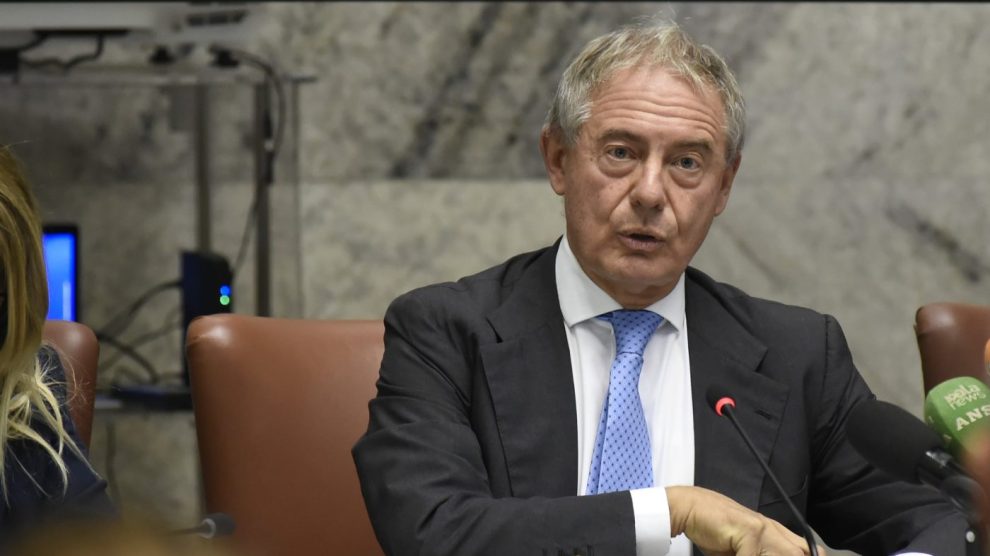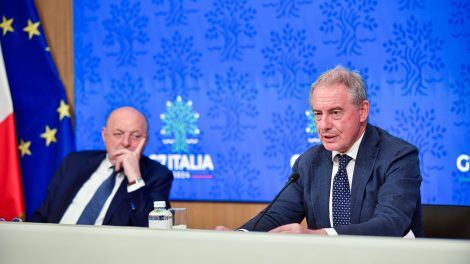Rome backs “fair share”… On Tuesday, while at the informal EU Council in Léon, Enterprise Minister Adolfo Urso explained Italy’s position on whether large online content providers should help finance the telecoms networks and contribute to their development. “All market players benefiting from the digital transformation must contribute in a fair and proportionate way to the costs of infrastructure, services and public goods, for the benefit of all people living in the EU,” reads an official note.
… in principle. The meeting highlighted the urgent need “to accelerate on the road to the digital decade, with the aim of ensuring maximum coverage of ultra-wide bandwidth at the service of citizens and businesses, reaffirming the EU’s leadership in the telecommunications sector and Europe’s centrality in submarine cabling, to which Italy is particularly committed through its companies.” To this end, “more investment and more transparency are certainly needed, in a context of greater security, with adequate instruments to support the sector in terms of both demand and supply, of public and private players.”
- In this context, “Italy takes note of the principle of ‘fair and proportionate contribution,” said Minister Urso. A position seemingly in conflict with that expressed by Digital Undersecretary Alessio Butti, who had tabled several arguments against what telcos call “fair share.” But a closer look reveals their positions are not that distant.
But but but: so as to determine what constitutes a “fair contribution” to the future of connectivity, says the note, “Italy considers it appropriate for the Commission to conduct more in-depth studies” and believes more time is needed “to assess the impact on network infrastructures” of the data flows. “The issue “is clearly delicate and of such a magnitude” that it must be addressed “at the EU level” so as “not to create distorting effects or violations of the principle of net neutrality.”
- Recalling the results of a Commission consultation on the matter, Minister Urso called for more accurate studies – such as “an ex-ante impact assessment by the Commission to help us understand if and how much the infrastructure is ‘burdened’ by the overloading of [digital content] flows, thus analysing whether a fair share measure could have an unintended impact.”
- As the Commission report underscored, nearly all EU telcos are yet to provide the data to make the case for “fair share” investments.
- That’s the same direction indicated by Undersecretary Butti.
Remember the end goal. Telcos and large content generators must, therefore, cooperate “with the sole objective of further accelerating the development of new fixed and mobile, virtualised and cloud-based ultra-broadband digital networks, disseminating quality content and guaranteeing adequate service levels for users, all without ever jeopardising the investments of national champions in adjacent sectors (such as broadcasters) present in each Member State,” concluded Minister Urso.
What now? In early October, when the Commission consultation results came in, Internal Market Commissioner and “fair share” proponent Thierry Breton effectively postponed discussions on an EU-wide telecommunications reform (he dubbed it a “Digital Networks Act”). The Commission aims to reach a final proposal before the summer of 2025, but because of the EU elections in June 2024, the matter lies in the hands of the next Commission.




